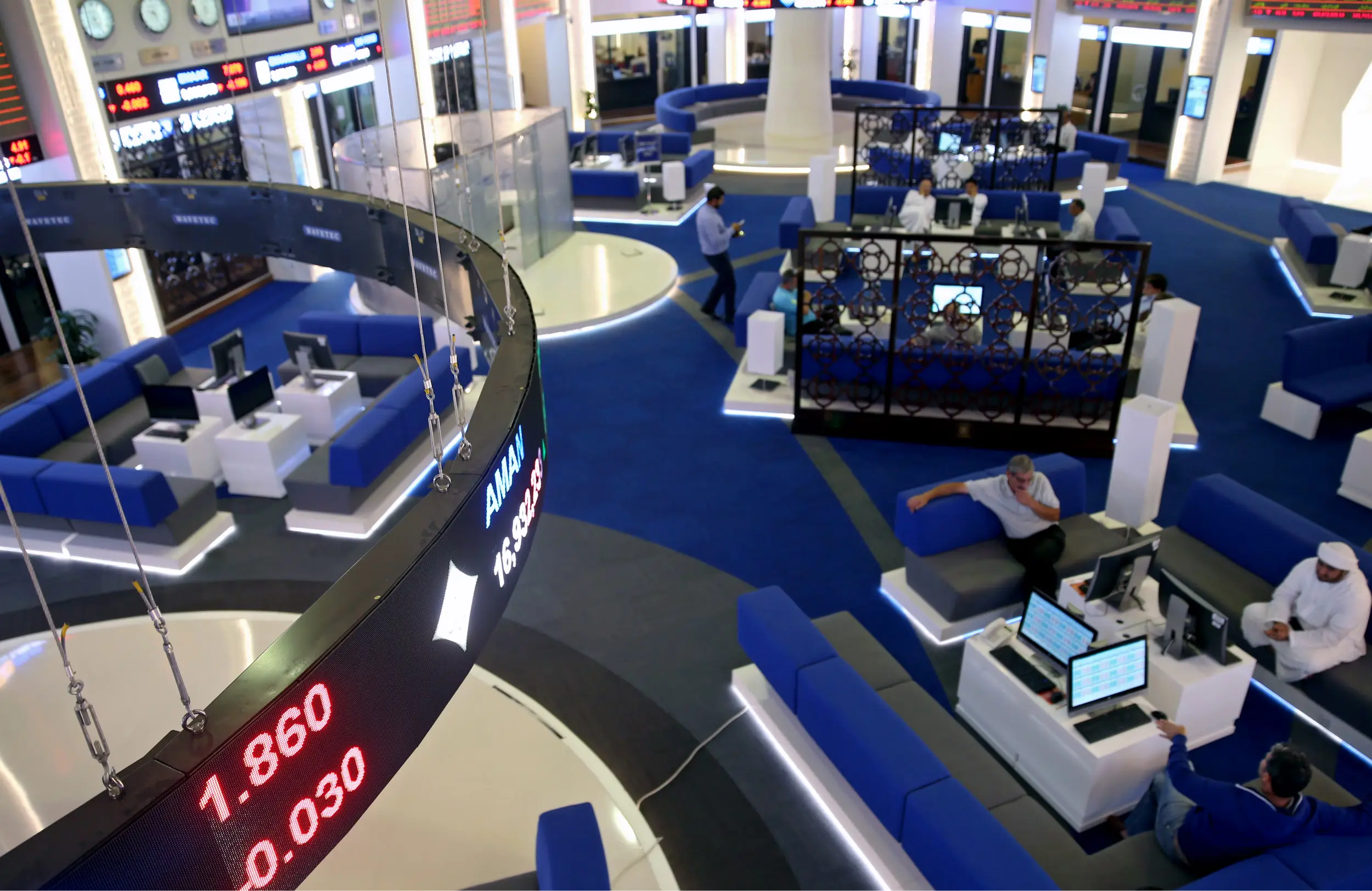October 9, 2025
Gulf markets closed mixed as investors weighed rising oil prices against optimism over a potential U.S. rate cut, impacting stocks in Dubai, Abu Dhabi, and Riyadh.

Gulf Cooperation Council (GCC) markets ended the trading session with mixed results as investors navigated the dual impact of rising oil prices and hopes of an upcoming U.S. interest rate cut. Market participants in Dubai, Abu Dhabi, and Riyadh exhibited cautious optimism, balancing energy sector gains with financial sector sensitivities.
Market Highlights:
Dubai Financial Market (DFM): The index saw moderate gains, led by oil-related and industrial stocks. Strong energy prices boosted investor sentiment, offsetting underperformance in some retail and services sectors.
Abu Dhabi Securities Exchange (ADX): ADX posted slight declines in technology and banking shares, while energy and construction stocks maintained upward momentum.
Tadawul (Saudi Arabia): The Tadawul Index remained flat, with investors awaiting signals from the Federal Reserve regarding potential interest rate cuts that could influence global liquidity and foreign investment flows.
Oil Market Influence:
Crude oil prices continued to rise due to supply concerns in key producing regions, alongside geopolitical tensions in the Middle East. Brent crude climbed above $95 per barrel, bolstering energy-related stocks across Gulf markets. Analysts noted that higher oil prices support fiscal revenues in oil-exporting GCC countries, reinforcing investor confidence in energy-heavy portfolios.
U.S. Rate Cut Expectations:
The market optimism was tempered by speculation over a potential U.S. Federal Reserve rate cut. Traders anticipate that lower U.S. rates could boost global liquidity, making Gulf equities more attractive to international investors. Conversely, uncertainties around inflation and economic growth in the U.S. and Europe could influence risk appetite in the region.
Investor Sentiment:
Investors demonstrated a cautious approach, favoring sectors directly linked to oil, infrastructure, and real estate, while remaining wary of technology, banking, and consumer discretionary stocks. Analysts suggest that mixed market outcomes reflect global uncertainties, including geopolitical developments, U.S. economic policies, and fluctuations in commodity prices.
Expert Commentary:
GCC Economist: “Gulf markets are reacting to a complex mix of factors. Rising oil prices are providing a safety net for the energy-heavy indices, while rate cut speculation in the U.S. is keeping investors hopeful for liquidity and inflows.”
Investment Strategist: “The mixed closing underscores the sensitivity of Gulf equities to global macroeconomic developments. Investors are closely watching oil, interest rates, and regional political developments.”
Outlook:
Gulf markets are expected to remain volatile in the near term as traders monitor oil price movements and signals from global central banks. Analysts recommend a cautious investment approach, with a focus on energy, infrastructure, and high-dividend stocks, while staying alert to potential geopolitical and macroeconomic shocks.